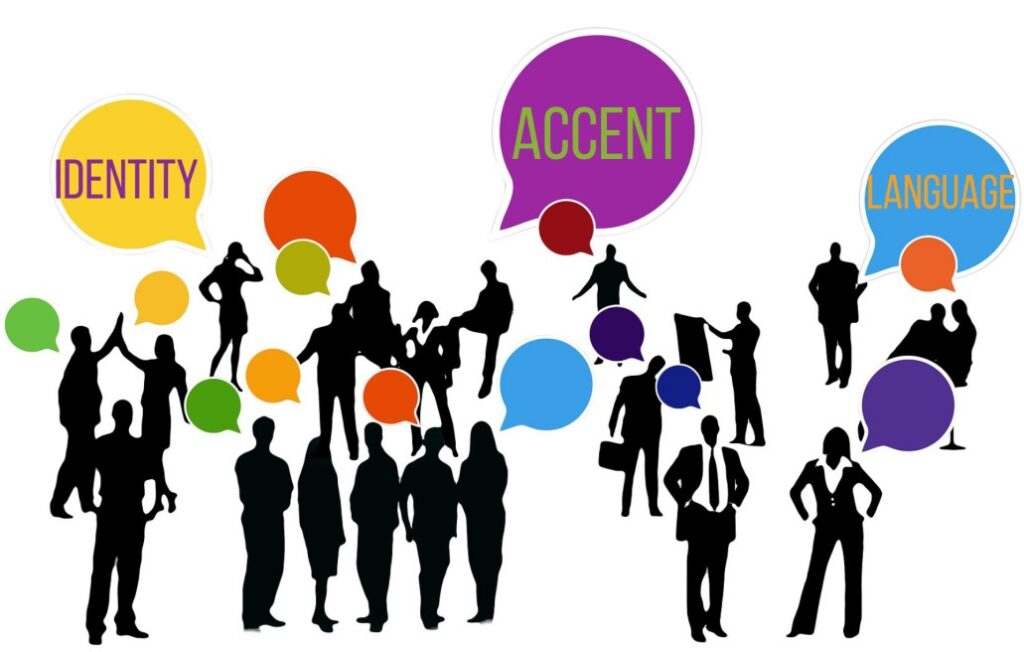
Language shapes our ideas, opinions, and social relationships, and it is an essential component of human identity. It is an effective means of communication that enables people to convey their thoughts, feelings, and cultural background. Our language not only helps to define who we are, but it also reflects who we are. By highlighting the importance of language in forming cultural and personal identities, this argumentative essay seeks to emphasize the need of preserving and celebrating linguistic diversity. This article aims to highlight the significance of language in shaping personal and cultural identities, emphasizing the need to preserve and celebrate linguistic diversity.
Language as an Identity Reflector
Language is a reflection of one’s identity as well as a tool for communication. Our distinct linguistic identity is shaped by the words we use, the accents we adopt, and the dialects we speak. Numerous elements, such as our social surroundings, cultural background, and upbringing, have an impact on the language we choose. People who are raised in multilingual households, for example, might create a hybrid linguistic identity that combines aspects of both languages.

Language also acts as a symbol of cultural identity. Diverse languages frequently possess unique cultural subtleties that mirror the beliefs, customs, and background of a specific society. For instance, the importance of authority and respect in Japanese culture is reflected in the language’s usage of honorifics. Diversity in language is something we can embrace and protect in order to promote social harmony and cohesiveness by helping people understand and appreciate one another’s cultures.
Maintaining Diversity in Linguistics
The globalized world of today presents several obstacles for language diversity. Many other languages have been marginalized and put in danger as a result of the dominance of a small number of main languages, like English. In addition to undermining cultural legacy, this loss of linguistic diversity also restricts the expression of individual and group identities.

Supporting minority languages and encouraging multilingualism are crucial for maintaining linguistic diversity. Language revitalization initiatives should be funded by governments and educational institutions to ensure that minority languages are taught and maintained for upcoming generations. People can also make a significant contribution by accepting and appreciating linguistic diversity in their daily lives. A more accepting and tolerant society can be promoted by learning and utilizing a variety of languages.

Linguistic Diversity’s Advantages
Diverse linguistic backgrounds assist people and civilizations in many ways.
Cultural Heritage & Preservation:
Different languages have different histories, customs, and identities. Diverse language preservation contributes to the preservation of cultural diversity and legacy by preserving ancestors’ wisdom, traditions, and morals.
Cognitive Benefits:
Research has connected multilingualism to a number of cognitive benefits, including better memory, increased problem-solving capacity, and higher multitasking ability. Brain function and cognitive flexibility can both be enhanced by multilingualism.
Improved Communication Skills:
Speaking a variety of languages helps people communicate effectively, which makes it possible for them to engage with people who speak a different language and develop empathy, understanding, and open-mindedness.
Global Opportunities:
Because of their ability to communicate with a wider range of clients, customers, and coworkers, multilingual people have an advantage in the worldwide employment market. Having multilingual skills opens up professional chances abroad.
Improved Intercultural Relations:
The peaceful coexistence of diverse groups is encouraged by linguistic diversity, which also improves intercultural understanding. Language proficiency promotes harmony and respect between people from different cultural backgrounds.
In summary, our cultural and personal identities are shaped by language, which is a potent instrument. Understanding the role language plays in the construction of identity allows us to strive toward maintaining linguistic diversity and advancing inclusivity. It is the responsibility of individuals, governments, and educational institutions to promote minority languages and recognize linguistic variety. By doing this, we may build a society that is richer and more harmonious and in which each person’s linguistic identity is honored and treasured.
References
- https://rm.coe.int/why-should-linguistic-diversity-be-maintained-and-supported-in-europe-/1680887831
- https://www.jcu.edu.au/this-is-uni/people-and-societies/articles/how-language-promotes-our-history-and-empathy
- Crystal, D. (2003). English as a global language. Cambridge University Press.
- Grosjean, F. (2010). Bilingual: Life and reality. Harvard University Press.
Ababakirova Marjona, student, Group 2101
International Journalism Faculty, UzSWLU
marjonamuk412@gmail.com


No Comments so far
Jump into a conversationNo Comments Yet!
You can be the one to start a conversation.